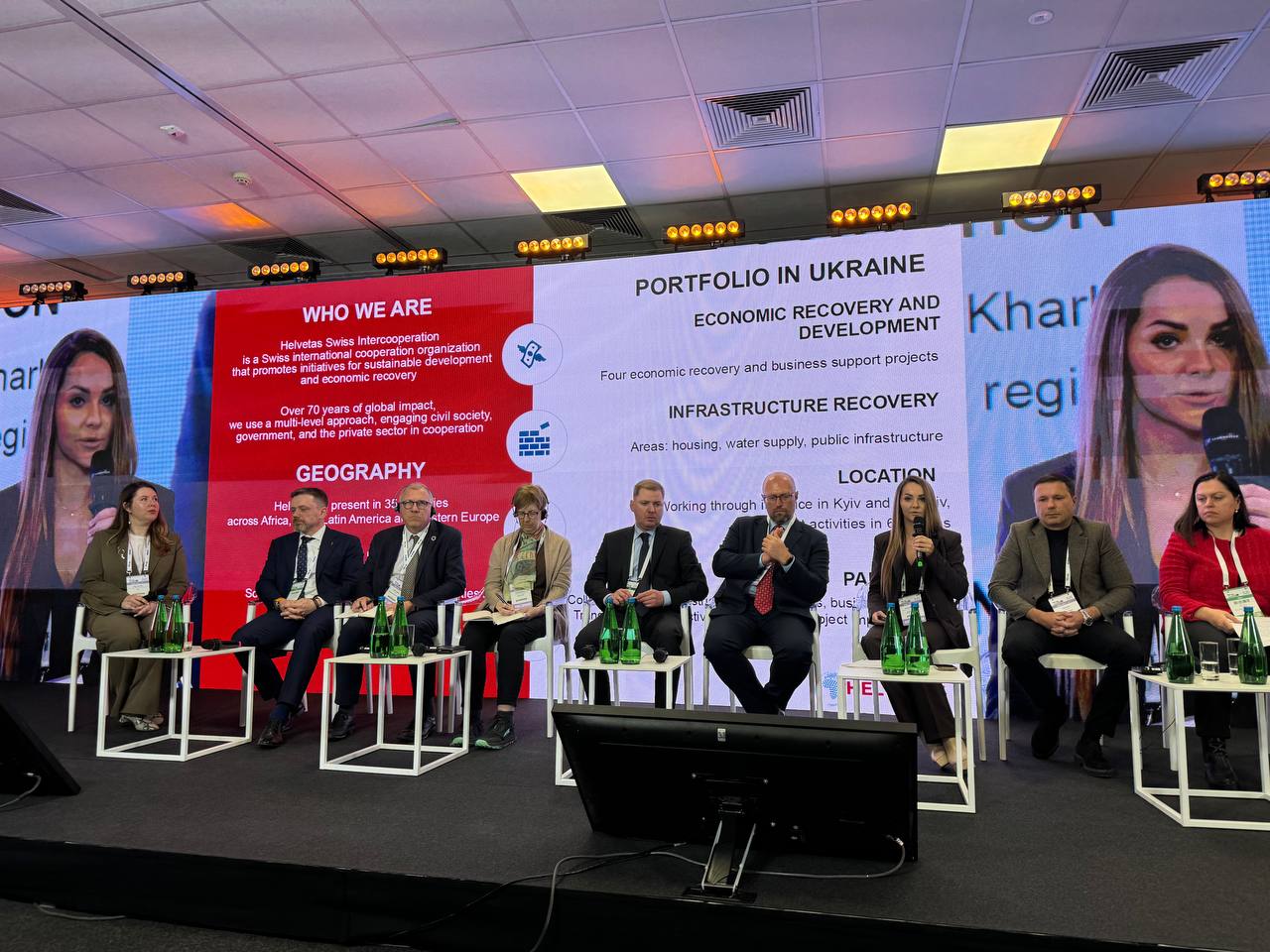On November 13 in Warsaw, as part of the 5th international ReBuild Ukraine exhibition and conference, the fourth Recovery Construction Forum took place. The event brought together more than 500 participants — representatives of governments, international financial institutions, developers, banks, and civil society. The Forum focused on practical tools and mechanisms that are already shaping Ukraine’s recovery policy today.
During the panel discussion “New housing policy for Ukraine’s recovery”, Ievgen Metsger, Chairman of the Management Board of the Ukrainian Financial Housing Company (UFHC), delivered a keynote address. He emphasized that Ukraine is facing an unprecedented challenge. In the midst of a full-scale war, the country is not only rebuilding its housing stock but also creating mechanisms that make homeownership accessible to those who need it most.
“People need a Home. And our task as a state company is to give them this opportunity. Because Ukraine’s recovery begins not with cranes and bricks, but with a sense of safety, personal space, and confidence in tomorrow,” — said Ievgen Metsger.
UFHC’s experience demonstrates that housing policy can become a powerful driver of social stability and economic growth. Through the state mortgage program yeOselia, operated by UFHC, more than 20,000 mortgage loans worth over 35 billion UAH have been issued within just two years. That is more than 1.2 million square meters of housing built for Ukrainian families. Sixty percent of borrowers are military personnel and veterans, and nearly twenty percent are internally displaced persons. Behind every figure is a story of people returning home, rebuilding their lives, and laying the foundation for the country’s future.
Participants of the Forum noted that Ukraine is building a new model of housing policy — one based on partnership between the state, international financial institutions, and the private sector. UFHC is already cooperating with the World Bank and other international partners to strengthen the company’s financial sustainability, develop new housing finance instruments, and attract investment into the reconstruction sector.
Today, yeOselia is more than a mortgage program — it is an example of how state policy can work for people, even in the most challenging circumstances.

